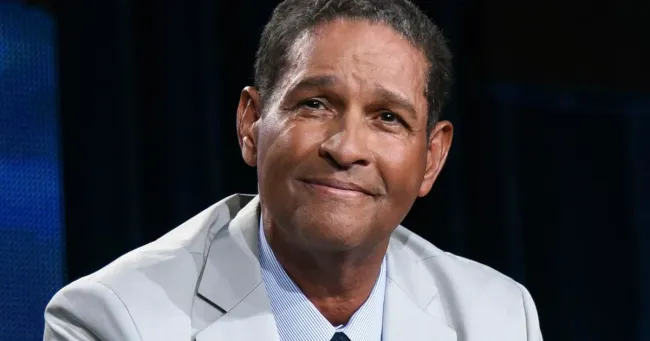Bryant Gumbel and the Unfinished Racism Debate: A Legacy Under Scrutiny
Bryant Gumbel is a name synonymous with sharp commentary and fearless journalism. For decades, the veteran broadcaster has been a mainstay in American media, celebrated for his willingness to tackle sensitive issues around race, politics, and society. However, his boldness has also sparked controversy. Is Gumbel a divisive figure, or is he simply unafraid to confront uncomfortable truths about race in America? Let’s examine the moments that have defined his career and ignited the ongoing debate surrounding his legacy.
The Winter Olympics Comment: Provocative or Problematic?
In 2006, Gumbel made waves on HBO’s Real Sports when he quipped, “Try not to laugh when someone says these are the world’s greatest athletes, despite a paucity of blacks that makes the Winter Games look like a GOP convention.” The backlash was immediate. Fox News personalities John Gibson and Sean Hannity accused him of racism, with Gibson asserting that Gumbel had “granted himself the right to be racist” and Hannity twisting his words to suggest he was calling all Republicans racist.
The controversy raised a fundamental question: Was Gumbel’s comment an example of racism, or was it a blunt critique of the glaring lack of diversity in winter sports? Critics argued his words were inflammatory and unfairly targeted Republicans, while supporters viewed them as an essential call-out of systemic exclusion. The uproar highlighted an uncomfortable reality—discussions about race, especially from a prominent Black figure, often provoke intense discomfort.
The “Black Tax” Monologue: A Raw Look at Inequality
In 2020, Gumbel delivered one of his most personal and poignant commentaries on Real Sports, describing the “Black tax”—the additional burden borne by Black Americans navigating systemic inequality. “It’s paid daily by me and every person of color in this country, and frankly, it’s exhausting,” he declared.
The monologue resonated deeply with many, offering a stark portrayal of the everyday struggles faced by Black Americans. Yet it also drew criticism, with detractors accusing Gumbel of playing the race card and fueling division. Supporters, however, praised his courage in speaking candidly about a reality that is often overlooked. This moment further solidified Gumbel’s reputation as a relentless advocate for racial justice, even as it placed him squarely in the crosshairs of public scrutiny.
The Donald Sterling Scandal: Exposing the Depths of Racism
In 2014, Gumbel joined Meet the Press to discuss the racist remarks of NBA owner Donald Sterling, calling them merely the “tip of the iceberg” of racism in America. He argued that such incidents reflect deeper systemic issues that are too often ignored. “We historically look at a tip of the iceberg and ignore the mass underneath it,” he explained.
This commentary sparked a polarizing debate. While some commended Gumbel for addressing the pervasive nature of racism, others dismissed his remarks as overly negative, insisting that America has made significant strides in race relations. The exchange underscored the enduring tension between recognizing systemic problems and celebrating progress.
The Trump NFL Attack: Journalism or Activism?
In 2017, Gumbel criticized then-President Donald Trump for condemning NFL players protesting racial injustice during the national anthem. He sarcastically thanked Trump for “energizing the social conscience of the modern American athlete,” describing the president’s remarks as “racist, churlish, and childish.”
While many applauded Gumbel’s defense of athlete-activists, others questioned whether he had crossed the line into political bias. Was he advancing a personal agenda, or was he holding a powerful leader accountable? The incident highlighted Gumbel’s tendency to blur the boundaries between journalism and activism, a characteristic that has defined much of his career.
Conclusion: Racist or Real?
So, how should Bryant Gumbel be remembered? To some, he is a divisive figure whose comments are unnecessarily provocative. To others, he is a vital voice in the fight for racial justice, unafraid to challenge the status quo. What’s undeniable is that Gumbel’s willingness to engage in difficult conversations has kept him at the center of America’s ongoing reckoning with race.
Love him or hate him, Bryant Gumbel embodies the complexities of addressing systemic racism in a polarized society. His voice reminds us that these debates are far from settled—and perhaps, that’s exactly the point.
What’s your take? Is Gumbel a provocateur, a truth-teller, or something in between? The conversation continues.
